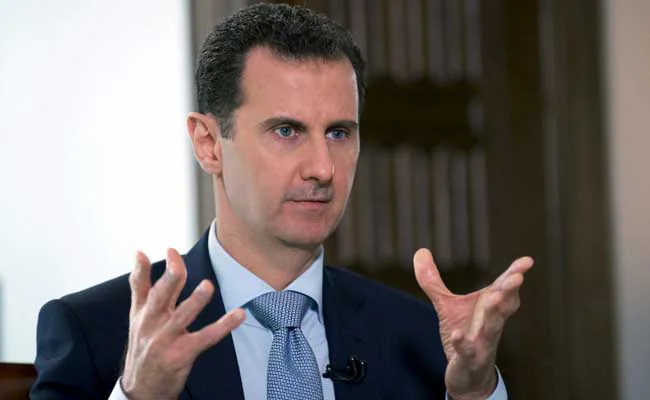The international community now has to come terms with a new reality-the dramatic power shift in Syria. On this day, Ahmed al-Shara, the leader of the newly formed governing rebel coalition of Syria, was bold enough in taking his appeal to the global stage. On the ominous note of terrorism designations, his call to lift sanctions marks a watershed in Syria’s politics of reconciliation and rebuilding.
It is at this time, when the attention of the world is captured by Damascus and all waiting anxiously for the dust of recent upheavals to settle that the rebel leader, this time in a military fatigued dress is, in his dark business suit, making the appearance of abandoning guerrilla tactics for incisive diplomatic overtures, speaking to a handful of journalists, carefully crafting words for the audience which is on international capture. “We are at a crossroads,” al-Shara fated and unbroken by such weight, in a voice that remained even. “This is the Syria of today; it is not the Syria of yesterday. We are ready to work with the world, but the world needs to work with us.”
The insurgent leader’s demand that sanctions be lifted goes beyond simple political scheming. It is an appeal for assistance from a country that has been ravaged by years of war. Once reverberating with gunfire, the streets of Damascus are now alive with the prospect of restoration. The international sanctions that still stifle Syria’s economy are only one of many challenges on the road to reconstruction.
Al-Shara underlined, “Our people suffer every day these sanctions are in effect.” “We’re not asking for charity; we’re asking for a chance to rebuild our country with our own hands.”
The ghost of the past hangs over al-Shara as it tries to make amends with the world. The same day, a message allegedly from Bashar al-Assad, the deposed president of Syria, appeared on social media platforms he used during his tenure. Since his hurried escape from Syria just over a week ago, this was his first public statement.
Thus came the statement, dripping with defiance, conjuring the picture of a head of state reluctant to leave. “Stepping down or seeking refuge has never been an option,” al-Assad once said of himself, a contrast to the stark reality of his current exile. He described tension evacuation into the coastal city of Latakia-collaborated with Russian allies-as the rebel forces were fast closing in on Damascus on December 8th.
The truth of the statement of al-Assad is questionable, but significant timing cannot be denied. As the new leadership of Syria seeks international legitimacy, the voice of the old guard serves to remind one that many, perhaps too many, ties of loyalty and resentment continue to shape the political landscape of the country.
It was al-Assad by the walls before, now it is call banners of unity and that of reconstruction. Here the inhabitants of the city, already exhausted by years of conflict, enter with caution and trepidation into this apparent new phase. “This was in the opinion of The India Times.
Sate Fatima, a shopkeeper in Damascus who requested that the publication withhold her last name, “We’ve seen so many promises being broken” ‘But what choice do we have except to remain optimistic that this time will be unlike the seventy-two years of civil war that took place prior to the signing of this document?’
As the Syrian state is on this cross-road, the international community is in dilemma. Elimination of terrorism listing and the lifting bans could bring joy to a people who have suffered the worst in the hands of terrorists. However, such moves would also tame a rebel coalition whose previous behavior has been questionable.
The next few weeks will be decisive for Syria’s future. Will the international community listen to the words from al-Shara and start to cooperate with new leadership? Or, a number of issues among which are stability and human rights will continue to deprive Syria of interaction with other countries in the international community?
These questions remain donors during the night In Damascus. As with the country it embodies, the city is at the crossroads. Where it is going to lead will depend not only on the conduct of new rulers, but on how the world will greet them.
At the same time, they, the Syrian people, stay Syrians and have to start building a new life for themselves with the bitter experience of the failed hope of the last three years fresh in their memory. One Damascus resident sum it up as follows “We’ve gotten through the worst of it. Now, we’re ready for the best, whatever this implies”.







